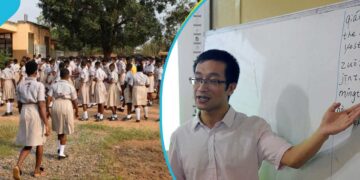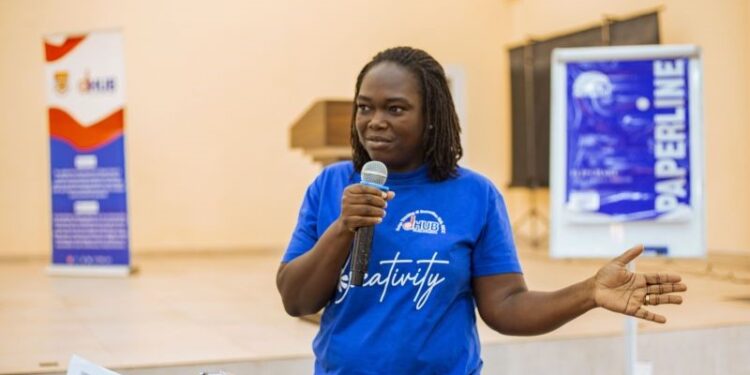The University of Cape Coast’s Design Thinking and Innovation Hub (D-Hub) has launched a three-day stakeholder engagement forum focused on the Triple Helix Model.
This initiative aims to enhance the professional development of university graduates, fostering collaboration between industry, academia, and policymakers to address pressing challenges such as unemployment.
During the opening ceremony, Dr. Mrs. Keren Naa Abeka Arthur, the director of D-Hub, spoke exclusively to ATL FM NEWS about the importance of collective action in tackling unemployment, stating “These challenges cannot be addressed in isolation. The Triple Helix Model provides a platform for industry, academia, and government to work together on complex issues.”
She further explained, “The Helix model of innovation emphasizes that to tackle wicked problems like unemployment, we cannot continue to work in silos. Each stakeholder has a critical role to play. This model has even evolved into a Quadruple Helix, incorporating civil society and media to address these complex issues.”
Dr. Arthur highlighted the global priority of addressing unemployment and the ongoing discussions among stakeholders regarding its causes and solutions.
“This forum is a crucial platform for fostering understanding and cooperation in the fight against graduate unemployment,” she noted.
She pointed out the prevalent mismatch in understanding among stakeholders, saying, “There are statements that suggest various stakeholders don’t understand each other. This program creates a platform for them to come together, discuss their needs, and co-create solutions.”
“Our approach is to empower users by adopting a design thinking method that places stakeholders at the center,” Dr. Arthur explained. “We want them to walk in each other’s shoes and see issues from different perspectives, allowing for a deeper understanding of the real problems.”
Mrs. Angela Ohene Boateng, Director of Research, Monitoring, and Evaluation at the National Service Secretariat, also spoke at the forum, announcing plans to deploy 180,000 national service personnel this year across various sectors.
Emphasizing the importance of equipping them with skills for personal and professional growth, she noted, “In our initial phase, we mobilized around 106,000 personnel from diverse academic backgrounds. This deployment aligns with our commitment to key sectors critical for national growth.”
Despite these efforts, Mrs. Boateng acknowledged a persistent skills mismatch between graduates’ qualifications and industry needs, revealing “This gap presents challenges for employers and graduates alike.
“We must ensure our national service deployments not only support operational needs but also help young professionals gain valuable industry experience,” she stated.
She emphasized the national implications of this mismatch, particularly in rapidly evolving fields like engineering and information technology, highlighting that “This issue impacts productivity, economic growth, and global competitiveness. Our responsibility is to strategically align personnel deployments with the country’s developmental goals.”
To address this challenge, Mrs. Angela Ohene Boateng underscored the need for ongoing dialogue between academia and industry, noting that “This feedback loop is essential for reshaping educational curricula and ensuring our graduates are better prepared for the realities of the workplace.”
Read Also: Gov’t not Committed to Ending Galamsey – Prof. Kobby Mensah
Source: Anthony Ayisadu/ATL FM NEWS




























